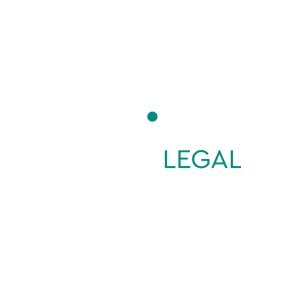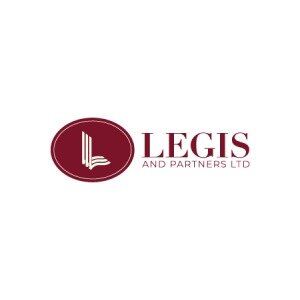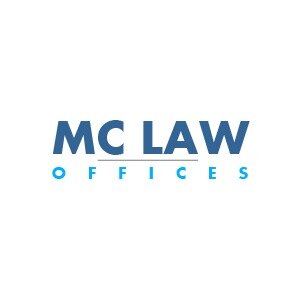Best Due Diligence Lawyers in Mauritius
Share your needs with us, get contacted by law firms.
Free. Takes 2 min.
Or refine your search by selecting a city:
List of the best lawyers in Mauritius
About Due Diligence Law in Mauritius
Due diligence in Mauritius is a crucial part of business transactions, financial investments, and mergers and acquisitions (M&A). It involves investigating and reviewing the financial, legal, operational, and strategic aspects of a business entity. This process helps in identifying potential risks and liabilities that may impact the transaction. In Mauritius, due diligence is vital for compliance with local regulations, including anti-money laundering laws, tax compliance, and ensuring fair market transactions, making it an essential practice for investors and businesses.
Why You May Need a Lawyer
There are several situations where legal assistance in due diligence could be necessary:
- You're considering buying or investing in a Mauritian company and want to ensure financial and legal integrity.
- A merger or acquisition is in progress, requiring detailed scrutiny to uncover any hidden risks or liabilities.
- You're entering a partnership or joint venture and need to evaluate the potential partner's credibility and compliance with local laws.
- You're ensuring compliance with local and international regulations, such as anti-money laundering laws.
- Resolving legal disputes that may arise from incomplete or inadequate due diligence practices.
Local Laws Overview
Here are key aspects of Mauritian laws relevant to due diligence:
- Financial Services Act: This legislation governs financial services firms in Mauritius, emphasizing the need for thorough assessments and compliance.
- Companies Act: It regulates the formation, governance, and liquidation of companies in Mauritius, highlighting the importance of investigating a company's legal status.
- Anti-Money Laundering and Combating the Financing of Terrorism (AML/CFT) Regulations: Due diligence practices are crucial to comply with these regulations, which are enforced to prevent illicit financial activities.
- Taxation Laws: Due diligence can ensure tax compliance and identify any outstanding tax obligations that might impact a transaction.
Frequently Asked Questions
What is the primary purpose of conducting due diligence?
The main goal of due diligence is to assess and mitigate risks in business transactions by verifying financial, legal, and operational aspects of the involved entities.
What are some common types of due diligence conducted in Mauritius?
The most common types include legal, financial, operational, technical, and environmental due diligence.
Are there specific regulations for due diligence in Mauritius?
Yes, several regulations such as the Financial Services Act and AML/CFT laws underpin the necessity and scope of due diligence activities.
How long does the due diligence process usually take?
The duration can vary significantly based on the complexity of the transaction and the size of the company but typically ranges from a few weeks to several months.
Can due diligence be performed in-house?
While some preliminary due diligence activities can be performed in-house, it's often beneficial to engage external legal professionals for an unbiased and thorough review.
What are the consequences of not doing due diligence?
Failure to conduct due diligence can result in unforeseen financial losses, legal liabilities, non-compliance penalties, and damaged reputations.
Is due diligence required for every business transaction?
While not legally mandated for every transaction, conducting due diligence is highly recommended for any significant transactions to mitigate risks.
Can due diligence uncover fraud?
Effective due diligence can help uncover discrepancies, financial misreporting, or activities indicative of fraudulent behavior.
What are the costs associated with due diligence?
Costs can vary widely depending on the depth of the investigation and the professionals involved, but investing in thorough due diligence can prevent larger financial setbacks later.
Who is responsible for conducting due diligence in a company?
The responsibility often lies with a dedicated team, which might include legal, financial, and operational experts, and sometimes independent consultants or legal advisors.
Additional Resources
Several resources can assist those needing legal advice on due diligence in Mauritius:
- The Financial Services Commission (FSC): The regulatory body for financial services in Mauritius, offering guidance on compliance and regulatory requirements.
- The Mauritius Revenue Authority (MRA): Provides insights on tax laws and obligations relevant to due diligence.
- Local Law Firms and Consultants: Numerous local law practices specialize in due diligence and can offer tailored advice.
Next Steps
If you require legal assistance with due diligence, consider the following steps:
- Identify the specific area of due diligence where you need assistance (e.g., legal, financial).
- Compile all necessary documents and information about your transaction or business interest.
- Reach out to a reputable local legal firm or consultant specializing in due diligence.
- Engage in a consultation to discuss your needs, the scope of services offered, and associated costs.
- Ensure ongoing communication and collaboration with your legal advisors throughout the due diligence process.
Lawzana helps you find the best lawyers and law firms in Mauritius through a curated and pre-screened list of qualified legal professionals. Our platform offers rankings and detailed profiles of attorneys and law firms, allowing you to compare based on practice areas, including Due Diligence, experience, and client feedback.
Each profile includes a description of the firm's areas of practice, client reviews, team members and partners, year of establishment, spoken languages, office locations, contact information, social media presence, and any published articles or resources. Most firms on our platform speak English and are experienced in both local and international legal matters.
Get a quote from top-rated law firms in Mauritius — quickly, securely, and without unnecessary hassle.
Disclaimer:
The information provided on this page is for general informational purposes only and does not constitute legal advice. While we strive to ensure the accuracy and relevance of the content, legal information may change over time, and interpretations of the law can vary. You should always consult with a qualified legal professional for advice specific to your situation.
We disclaim all liability for actions taken or not taken based on the content of this page. If you believe any information is incorrect or outdated, please contact us, and we will review and update it where appropriate.
Browse due diligence law firms by city in Mauritius
Refine your search by selecting a city.

















